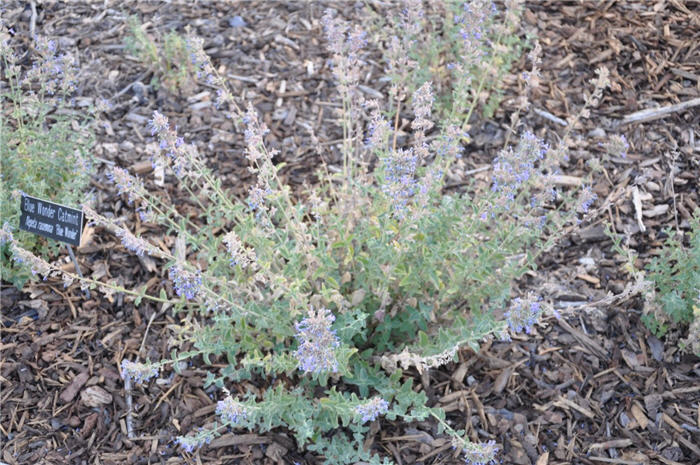| Botanical Name: Nepeta racemosa 'Blue Wonder' | |
| Common Name: Blue Wonder Catmint |

-
Anatomy
-
Culture
-
Design
Plant Type
Ground cover, Perennial, Herb
Height Range
1-3'
Flower Color
Blue, Lavender
Flower Season
Spring, Fall, Intermittent
Leaf Color
Grey Green
Bark Color
n/a
Fruit Color
n/a
Fruit Season
n/a
Sun
Full
Water
Low, Medium
Growth Rate
Moderate
Soil Type
Sandy, Clay, Loam
Soil Condition
Average, Poor, Well-drained, Dry
Soil pH
Neutral
Adverse Factors
n/a
Design Styles
English Cottage, Mediterranean, Ranch
Accenting Features
Fragrance, Showy Flowers
Seasonal Interest
Spring, Summer
Location Uses
Perennial Border, Parking Strip, Patio, Walkways
Special Uses
Mass Planting, Small Spaces
Attracts Wildlife
Hummingbirds
Information by: Stephanie Duer
Photographer:
Photographer:
-
Description
-
Notes
This Nepeta cultivar is a dwarf, mounding, bushy perennial growing to about 12 to 16 inches tall and wide. It has small, abundant, two-lipped, trumpet-shaped, dark blue flowers in loose, interrupted racemes in late spring, frequently reblooming in early fall. Grey-green foliage is oval, intricately-veined, and aromatic. Although Nepeta cataria is the true catnip which drives house cats ecstatic, the leaves of this hybrid catmint are also attractive, albeit less enticing, to cats. Ideal for hot, dry gardens.
Best grown in average, dry to medium moisture, well-drained soil in full sun to part shade. Thrives in dry soils in full sun, and is very drought tolerant. Shear flower spikes after initial flowering to promote continued bloom. Divide every few years if the center starts to thin. Cut back hard, a few inches above the crown, in late winter to early spring, before new growth emerges. This plant is sometimes listed and sold by nurseries as Nepeta x mussinii 'Blue Wonder.'